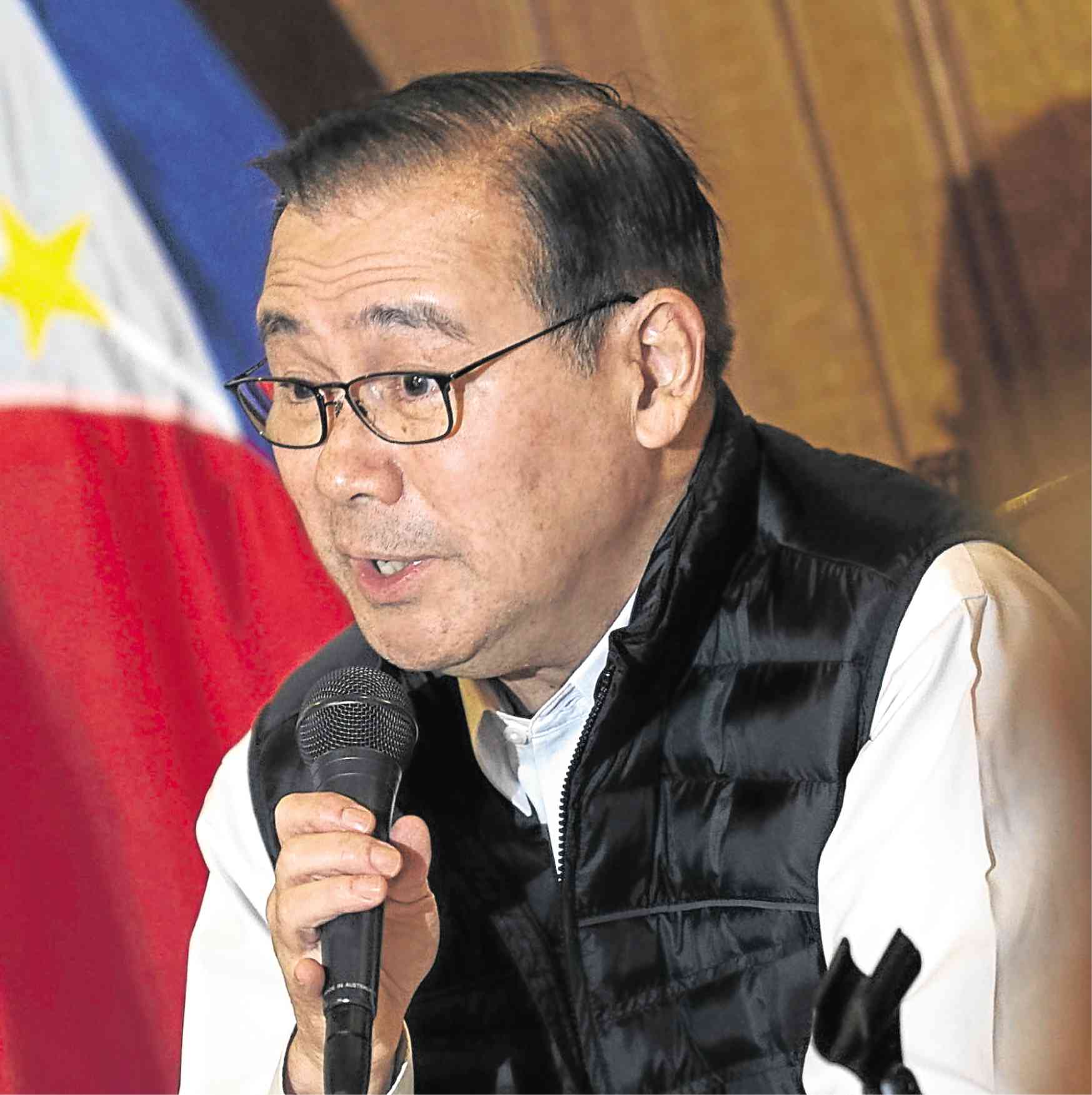Locsin tells UN gathering: Philippines needs no help in war on drugs

Teodoro Locsin Jr.
The Duterte administration will carry on with its brutal war on drugs without the assistance of any nation, Foreign Secretary Teodoro Locsin Jr. bluntly told a United Nations gathering in Vienna, Austria, on Thursday.
The strongly worded speech of the country’s top diplomat seemed to contradict the previous statements of Malacañang, which sought international cooperation in combating transnational crimes such as the drug menace.
The President himself earlier claimed that foreign countries had provided him with wiretapped information about the operations of drug syndicates in the country and helped him come up with his so-called narcolist and drug matrix.
‘A little understanding’
“As always, the Philippines fights its battles alone; it needs no help,” Locsin said at the 62nd Session of the UN Commission on Narcotic Drugs.
Article continues after this advertisement“(The Philippines) fears no opposition from any quarter, but it wouldn’t mind a little understanding,” he stressed.
Article continues after this advertisement“The Philippine war on drugs has braved withering criticism—indeed an international public relations war is being waged against the war on drugs,” he added.
Thousands of drug suspects have been murdered since Duterte declared his drug war in July 2016, most of whom were gunned down by masked assassins that human rights groups regarded as extrajudicial killings.
Colombian cartel
In defending the President’s violent antidrug campaign, Locsin claimed that the Colombian drug cartel had penetrated the Philippines despite Duterte’s iron-fisted strategy against the narcotics trade.
He also said some “local government units” had been in cahoots with international drug rings that had been dumping cocaine in sealed plastic bags off the country’s coastlines.
Amid mounting concerns of human rights advocates, Locsin reiterated that the drug war was consistent with the UN conventions and the 2009 Political Declaration and Plan of Action against the illicit drug trade.
The foreign secretary maintained that Duterte’s strategy was a “whole-of-nation approach” based on the government’s National Anti-Drug Plan of Action, which was given a “sharper edge, a longer blade and a wider swing.”
Said Locsin: “At its core are drug supply reduction—stemming the massive flow of illicit drugs; and drug demand reduction through community-based rehabilitation and the widest preventive programs—a strategy of enforcement, rehabilitation, reintegration.”
Rogue policemen
While admitting that innocent individuals had fallen victims to abusive policemen, he said these were “not collateral damage,” but were merely “morally repulsive cases of reckless disregard for basic rights and fundamental decencies by rogue” members of the Philippine National Police.
He said the violations committed by erring policemen should not stop the Philippine government from pursuing the drug war.
“Rather, they are calls to do it better: to address impunity and address accountability; to consider a clinical approach in addition to the current surgery,” Locsin said.
“With the war on drugs, the Philippines renews its commitment to the state responsibility to protect, first and foremost, the law-abiding against the lawless (elements),” he added.
Meanwhile, Locsin lambasted nongovernment organizations (NGOs) from the European Union (EU) for allegedly funding communist groups in the Philippines.